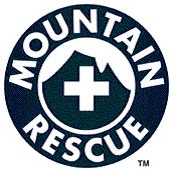During a search and rescue (SAR) incident, you might have the opportunity to assist a SAR dog team. This involves working alongside the handler and the dog as they search for airborne scents or a missing person's scent trail. Your role in such scenarios is crucial, as it allows the handler to focus exclusively on the dog's behavior and responses. Your responsibilities may include:
-
Navigation: Keeping track of your position during a hasty or trail search, or maintaining a precise grid in larger search areas.
-
Radio Operations and Communication: Managing communication channels effectively.
-
Marking: Recording alerts and olfactory clues both on the map and at the site, noting details like time and wind direction.
-
Clue Awareness: Remaining vigilant for visual and auditory clues, as in any search operation.
Your proficiency in these tasks is vital for enhancing the team's overall efficiency and success.
Rules for Working with SAR Dogs
-
Pre-Search Briefing: Before commencing your task, discuss with the handler what is expected of you.
-
Following the Handler’s Lead: The handler directs search tactics and knows how to utilize the dog's abilities optimally. It's important to respect their expertise.
-
Positioning: Avoid standing between the handler and the dog, as it can obstruct the handler's view of the dog's alerts. The recommended position is a few yards behind the handler.
-
Communication: Avoid distracting the dog while it’s working. Keep general conversation to a minimum.
-
Observational Support: If you notice the dog alerting, especially if the handler is preoccupied, promptly inform them.
-
Group Dynamics: Maintain a compact search party formation. Some SAR dogs may become anxious if the group spreads out, affecting their search focus.
-
Assisting with Alerts: If asked to hold a position during a dog alert, do so diligently. Mark the spot and direction of the handler and dog on your map.
-
Wind Awareness: Be conscious of air movement changes, as they may affect search tactics.
-
Safety Awareness: Be alert to potential dangers to the dog, such as traffic, hunters, or hostile environments.
-
Active Searching: Continue to utilize your training in spotting and assessing potential clues, and engage in attraction methods if appropriate.
In Case of a Find
-
Communication and Coordination: Be ready to communicate the location and condition of the found person to the base and assist in guiding the rescue team.
-
Supporting the Handler: If the handler is occupied with critical tasks, you may be asked to reward the dog. This can involve activities that the dog enjoys, like playing or cuddling.
-
Canine Care: If tasked with escorting the dog back to base, inquire about specific care needs like feeding, watering, and rest. The wellbeing of the dog is a priority until the handler reclaims them.
Adhering to these guidelines ensures that you contribute effectively to the SAR operation, supporting both the handler and the canine in their critical search efforts.












